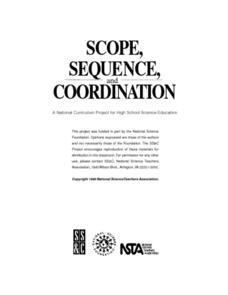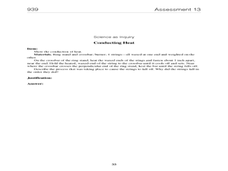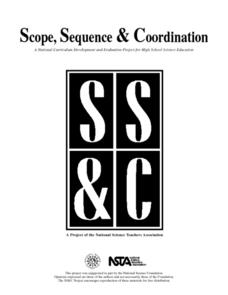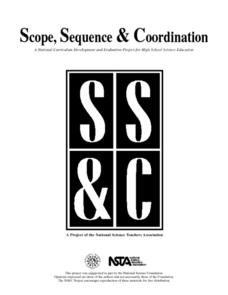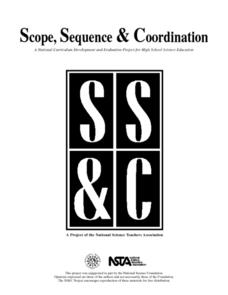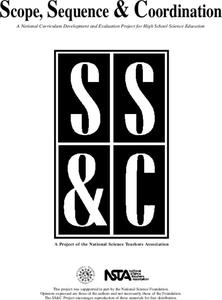Curated OER
Variations in Living Things
Biology beginners observe traits in a collection of plant parts to realize the tremendous amount of genetic variation within a species. They consider rules of nature and discuss what would happen if they changed. They also examine data...
Curated OER
Adaptations to Niches and Habitats
Life science learners measure and record traits of seeds, leaves, and their own hands and then graph the data to find a continous distribution curve. They compare and color diagrams of seven different animals' forelimbs (not included),...
Curated OER
Structures That Reveal Common Ancestry
Float like a butterfly, sting like a bee, check out wing shapes for common ancestry! Beginning biologists compare wings as analogous structures and discover that environment influences evolution of adaptations. A third activity relies on...
Curated OER
Fossil Formation
A fossil is worth a thousand words! Individuals craft their own amber fossil of an insect in addition to molds and casts of seashells. A third activity takes the lesson plan a notch higher: Learners measure stride lengths between tracks...
Curated OER
Solids, Liquids, and Gases
Not many lessons on states of matter can hold a candle to this one! Junior chemists gauge the density of paraffin in both liquid and solid phases. They fill 60 mL syringes with different materials to experiment with compressibility and...
Curated OER
Topographic Maps
Your choice of hands-on topographic mapping tasks is provided in this resource. From actual map-making to viewing and interpreting stereographic photos, the activities are sure to succeed. To make the most of this lesson, you will need...
Curated OER
Cells: A First-Hand View
In the first of two activities, your charges prepare wet mount slides of cork and bean sprout cells in imitation of Robert Hooke's historical investigation. An excerpt from his notes is included. Then, investigators compare animal cells...
Curated OER
Evidence of Heat Transformations
Earth, life, and physical science classes can all benefit from understanding heat transfer. There is not room enough to describe these seven exceptional laboratory experiments that explore conduction, convetcion, and radiation. Several...
Curated OER
Magnetism
This set of seven activities attracts physical science stars to concepts concerning magnetism. Pupils play with a lodestone, magnets, needles, and iron filings to understand magnetic forces, fields, and applications. If you are new to...
Curated OER
Sun, Spectra, and Stars
Get ready to spark interest in electromagnetic radiation! This resource shares nine indelible inquiries that you can choose from to ignite understanding of spectra and the relationship between light and heat. The assessments that follow...
Curated OER
Starlight
An introductory exploration of the nature of light is provided via activities and demonstrations. Science superstars observe various light sources, learn how to apply inverse square law, and practice using a light meter. Follow-up...
Curated OER
Limiting Factors for Populations
The "Bottled Bacteria" activity instructions are a bit unclear, but the remaining activities investigating limiting factors in ecosystems are well-written. Learners model the exosystem of a bear and a herd of deer. They set up a...
Curated OER
Oils and Plastic
Peruse the properties of polymers with your materials engineers, chemistry aces, or emerging ecologists. The inquiries in this resource include puncturing polyethylene plastic bags, dissolving polystyrene cups, creating a polymer...
Curated OER
Oxidation
For an introductory physical class, you can use these vivid activities to introduce learners to chemical reactions. Spontaneous combustion, melting and burning, tarnishing and rusting all are evidence that a chemical reaction has...
Curated OER
An Introduction to Acids and Bases
Investigating pH is intriguing, especially with these activities designed for an introductory chemistry or physical science class. Pupils use litmus paper to distinguish acids and bases and then make indicators from food products....
Curated OER
Factors that Affect Reaction Rates
Collaborating chemistry pupils observe that temperatrue increases the movement of dye throughout water, stirring increases the dissolving rate of sugar cubes, and concentration of solutions increases the chemical reaction rates. These...
Curated OER
Catalysts and Enzymes
Biochemists experiment with the oxothermic decomposition of hydrogen dioxide by adding manganese dioxide. They observe how pepsin enhances the action of acid on the digestion of egg white proteins. They use yeast to make bread rise. All...
Curated OER
Relative Positions of the Earth, Moon, and Sun Over Time
Teacher pages for four different activities and three assessments are provided in this resource. Topics deal with how the sun's position and Earth's atmosphere affect the amount of solar energy reaching Earth's surface. The concepts and...
Curated OER
Prokaryotes and Eukaryotes
Examine cyanobacteria cells as an example of prokaryotes and several other alga as examples of eukaryotes. Future biologists compare the two and notice the absence of nuclei in prokaryotes. These are classic activities for this purpose,...
Curated OER
Word Problems: Consecutive Integer Problems
In this math worksheet, students solve 15 consecutive integer problems. For example, "Find two consecutive integers whose sum is 45."
Curated OER
TicTac Town
Thirty one possible tic-tac-toe games are included in this presentation. Students must answer a question in each x and o position. When the grid position is selected the question appears and the answer is generated on the next click....
Curated OER
The Civil War (1861-1865) Through Maps, Charts, Graphs, & Pictures
True to its titles, this engaging and appealing presentation brings the 1860's into close focus with a number of images and statistics that would delight any Civil War buff. A few graphs allow for pupil input, such as listing the...
Mr. Nussbaum
Fort Sumter Reading Comprehension
The Battle of Fort Sumter was both the first and the least deadly battle of the American Civil War, with no soldiers lost during the lengthy bombardment. Learn more about the first shots of the Civil War with a short reading passage and...
Stanford University
Fort Sumter
The headlines screamed what everyone knew was coming: War! While Fort Sumter was considered the first battle of the Civil War, the engagement played differently in newspapers at the time. Using coverage from Northern and Southern...


